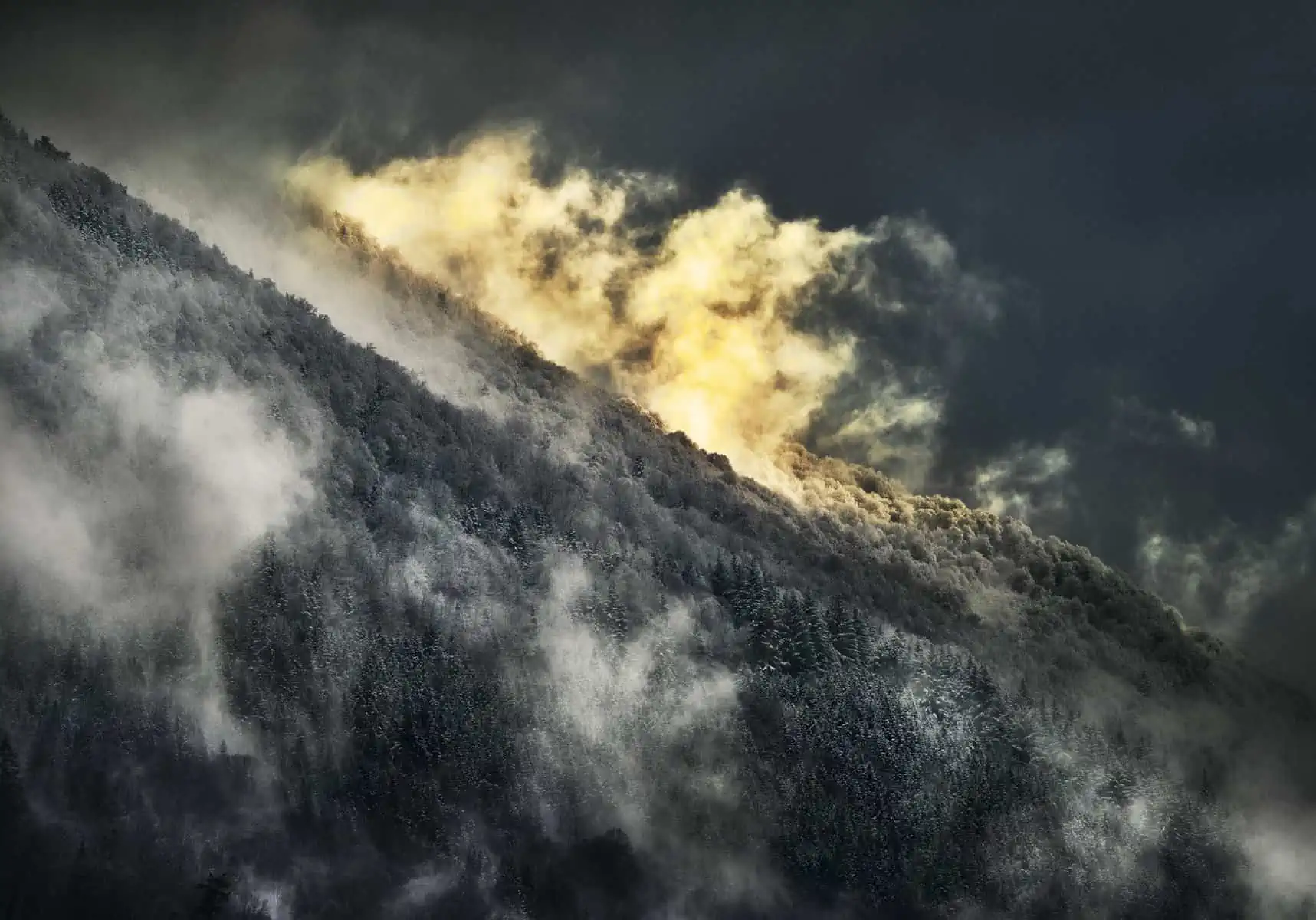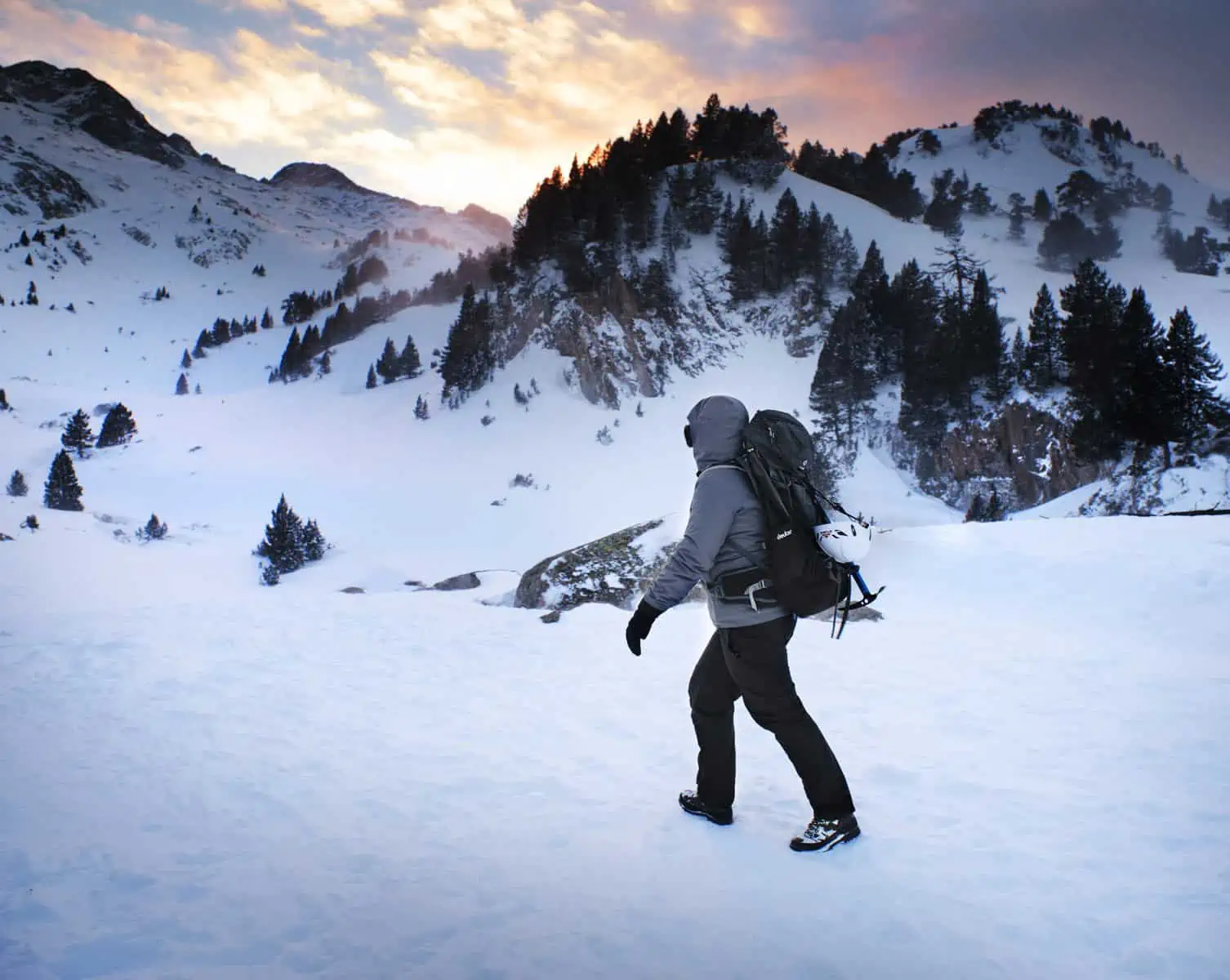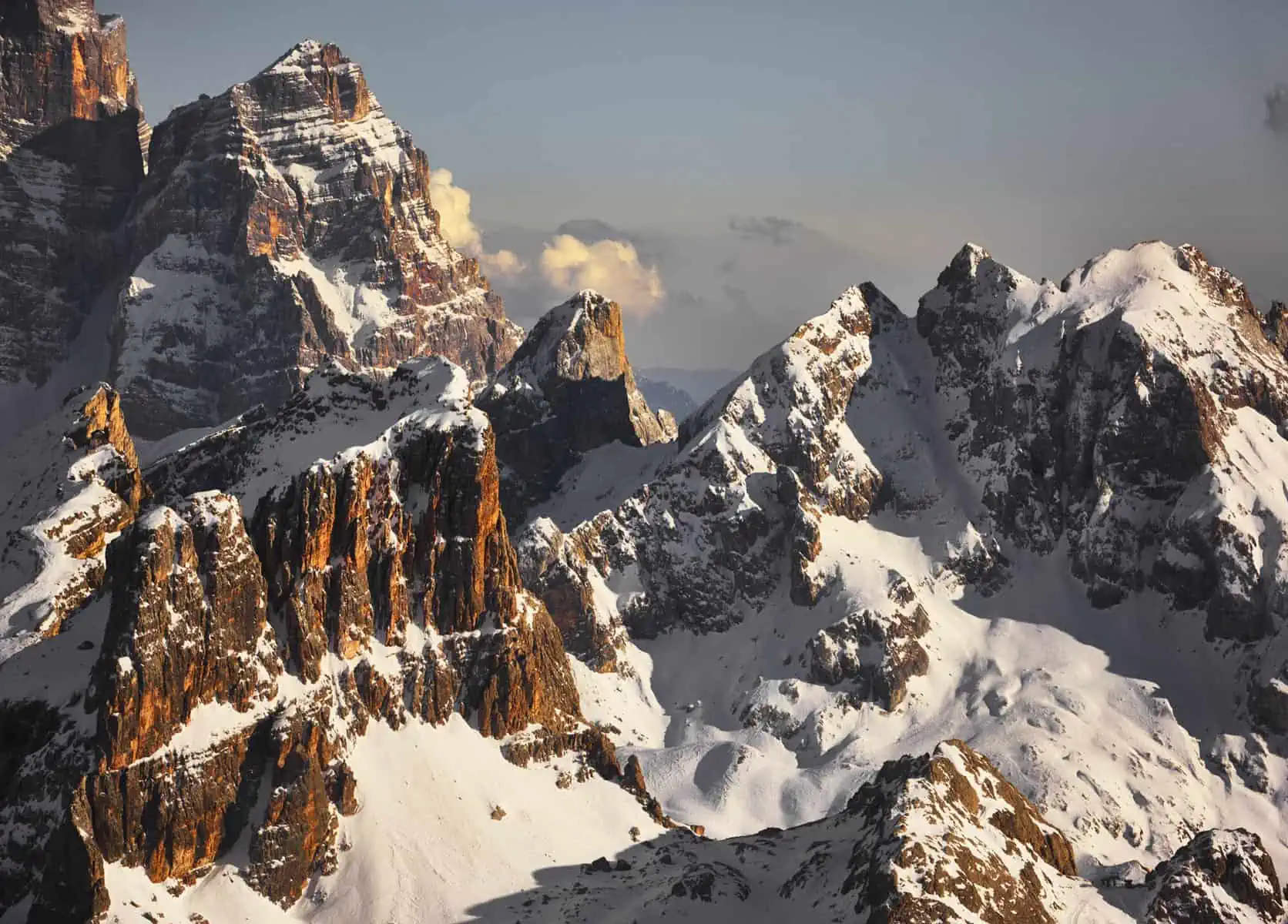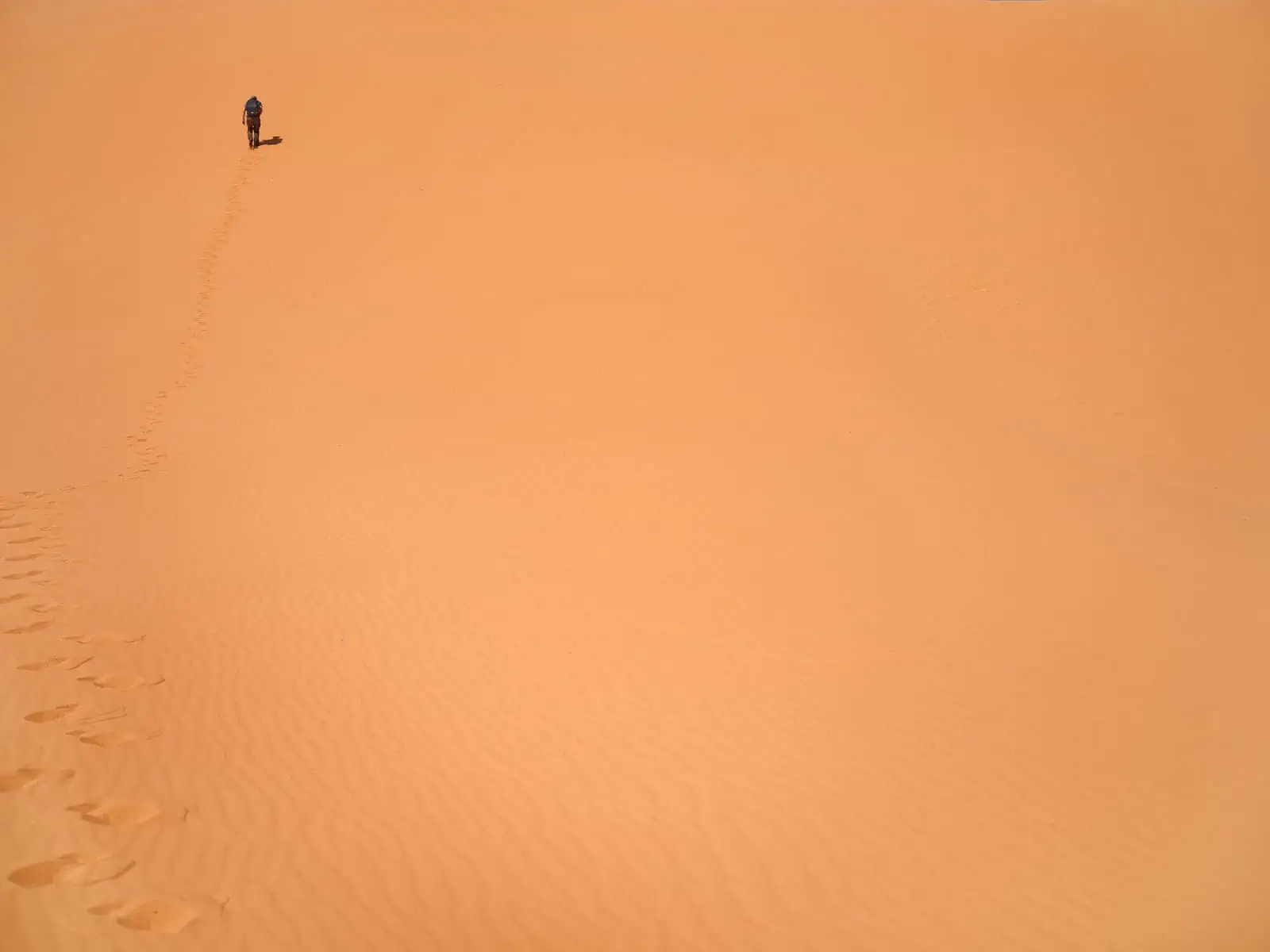There have been a number of times this year where something out of our control has stopped us from doing what we wanted to in the outdoors.
There was the blizzard in the Pyrenees which stopped us attempting to climb Aneto, under the guidance of a very qualified guide who you kinda want to listen to! Wind conditions at the summit of the mountain would have been 120mph and with windchill, it would have been -43 degrees celcius – all in all, conditions that are inhabitable and incredibly unsafe.
There was the unfinished hike in the Sierra earlier this summer, that stopped us backpacking early due to a snowstorm that was meant to come in. We had no prior knowledge of the trail, it was very cold and we were both suffering from bad head colds at the time. We followed the rangers advice to come out before the storm got bad.
There was the hike where Fay twisted her ankle – an ankle she broke many years ago in school, and has been weak ever since and had to make the decision to turn back from a mountain push with near to perfect conditions to summit. Making that decision was difficult but the right thing to do.
There was the time earlier this year where we turned back very quickly from what looked like a beautiful day of snowshoeing because we could hear avalanches coming down the mountain behind us.
Then this morning, there has been the derailed attempt to the top of Mount Snowdon in Wales. A route we’re incredibly familiar with, and a great thought for our last day of the trip before we head back to London. Except there is torrential rain pouring down outside of our window, the wind whistling frantically and the knowledge of that being a snow blizzard further up the mountain. There’s also the fact it’s going to get worse this afternoon with little to no visibility on a route that has unknown snow and ice at present.
It’s so saddening, as we begin our drive back to London today, because there’s really nothing else to do when in your head you’re trying to calm down older thoughts from the previous day, thinking about how awesome it’ll be when you’re on the top of the mountain.
Then there’s the questioning if you made the right decision. The worry that you didn’t and the upset that comes from wondering what if. Asking yourself the question ‘what if I’d done it yesterday instead?
The thing is, last night we were asked by a young couple in the pub about our favourite routes in Snowdonia. We told them that we’d seen the weather was bad the following day, but we didn’t know how bad it was going to be, and that Sunday looked to be much better with the promise of sunshine (but unknown amounts of snow). They persisted that they must hike to the top of Snowdon tomorrow, as it was their only option. We asked them if they had hiking boots and warm clothes and they told us they only really had the shoes and clothes they came in, bar an extra waterproof each. They each wore converse and jeans. Whilst it is possible (not our preference and strongly not advised or recommended) to hike up Mt Snowdon on a summers sunny day in jeans and converse, a summit hike in the conditions we’ve woken up to is a much different proposition. We can’t help but think about them this morning and hope they’ve chosen to stick with their safety rather than putting themselves and others in danger.
The problem is, it’s a tough thing to do, turning your back on a plan you’ve maybe been coming up with for weeks, months or even just days. You’ve been training, you’ve amped this thing up in your mind and the idea of turning back or not doing something is heartbreaking and a little bit soul crushing. It was heartbreaking for us in the Pyrenees that we didn’t get to climb Aneto in winter conditions; we’d been dreaming, visualising and training for this for months. In fact it was pretty much all we thought about. We’ve both felt this enormous sense before that we’re letting ourselves down or that ‘others might still be doing it so why can’t I?’ The thing is, even if others are still going to do something, you have to be honest and meet yourself where you are. If you’re potentially putting yourself in too much danger, it’s not worth that. Mountains are never worth your life. Some days are for challenges, and others aren’t.
The problem is, we often rack up our calculated concern about doing something, to mean that we’re weak. Or that we’re not as good as someone else. This is when it’s a great opportunity to observe other people who have more experience than you. For us, a great example of this has been understanding how mountaineers we’ve admired have handled tricky situations on big mountains. How our guide (who’s a very well known mountaineer with a lot of 8,000m peaks under his belt) in the Pyrenees handled the earlier mentioned situation of Aneto. He was so matter of fact about it. We already knew it, but it really hit home just how seriously taking the weather is to making decisions on the outdoors.
The problem is, sometimes our egos try to get in the way of making rational decisions. ‘What will they think if I don’t? I’ve bigged this up…’ ‘I can’t fail at this.’ A lot of people’s egos have gotten them into big trouble in the mountains. Our egos can, if we let them, lead us down a path of bad decision making. They can lead us to make decisions that terrify us. They can lead us to make decisions that put our safety, and the safety of others on the line. They can lead us to doing things that we are not comfortable with (and we’re not talking stepping outside your comfort zone here). They can also lead us to take risks that aren’t calculated, but instead are guided by a fear of how we’ll look to others, or being too rigid in what it is we want to achieve.
How do I see the difference?
If you’re in a situation where you find yourself questioning what the right thing to do is, look at what your thoughts are coming up around this. Be really honest with yourself here, because this is where we often try to argue that our ego wants what’s best for us. A few common thoughts we have from our egos are:
- I’m letting everyone down if I don’t do this
- Everyone else is doing it so why shouldn’t I? (even if something doesn’t feel right to you)
- I’ve paid so much money to do this
- I have to do this now, I won’t ever have another opportunity to do this
- What will the charity think who I’m collecting for?
- What will everyone think?
- If I don’t do it, I’ll never forgive myself
Be honest about where you are with questions like this in the situation. It’s also important to acknowledge if your thoughts are based in reality. Sometimes when we build up to something, we can get a lot of resistance to doing it, because our fears of the unknown come up. We don’t know what to expect. We’re scared what might happen. And this is where looking at the people around you is a good thing to do. How are they reacting to this? Is the weather actually as bad as you’re making out? Is the risk as high as it seems?
Stop taking it personally
If you have to turn back from, or not even begin something you’ve been prepping for, don’t make it about you. We find it so easy to personally attach judgement to our abilities when we have to say no to something. However, a weather storm isn’t your fault. Adverse conditions are not your fault. We often think ‘maybe if I was better prepared for it, it wouldn’t be a problem.’ There is a difference between calculated risk and taking risk for the sheer sake of taking risk. Remove the judgement from yourself. Remember it is natural to feel this way, but it is not helpful. Don’t let your feeling unhappy with yourself get in the way of you making the correct decision in the outdoors. We can also guarantee that you’ll have a much more enjoyable experience if you work on your personal attachment to these things. Ask yourself why you’re looking for this validation. What does it prove to you?
Look at what you can learn from that situation and be grateful for
When we are in a state of gratitude for the situations we have in our lives, we’re in a much happier place. What can you learn from this situation? It might be that this wasn’t a great time in the year to come. That your life is more important. To trust the guides around you. To listen to your gut. That you needed to be better prepared for altitude, snow, ice. There are so many things we can learn when we look for them. When we come from a place of gratitude for all that we can learn from a situation, we start to see other things we can do instead. We start to become opportunistic with our time. We find a new hike in a different area that we’d never heard of that becomes one of our favourites. The next time you find yourself feeling down about a decision in the outdoors, look for what the lesson is.
We all have differing levels of where we are
Getting into a good place with the outdoors is about getting into a space where you have the utmost respect for Mother Nature and the curveballs she often deals out. The truth is, getting deeper into the outdoors is going to come with disappointment, waiting around and having cabin fever. It’s part and parcel of it.
It’s about being imperfect.
It’s about making peace with your decisions.
It’s about stopping the constant questioning as to whether you’ve done the right thing.
Even if this is the only opportunity you’ll ever get to climb this mountain, it is not worth your life. Ever.




